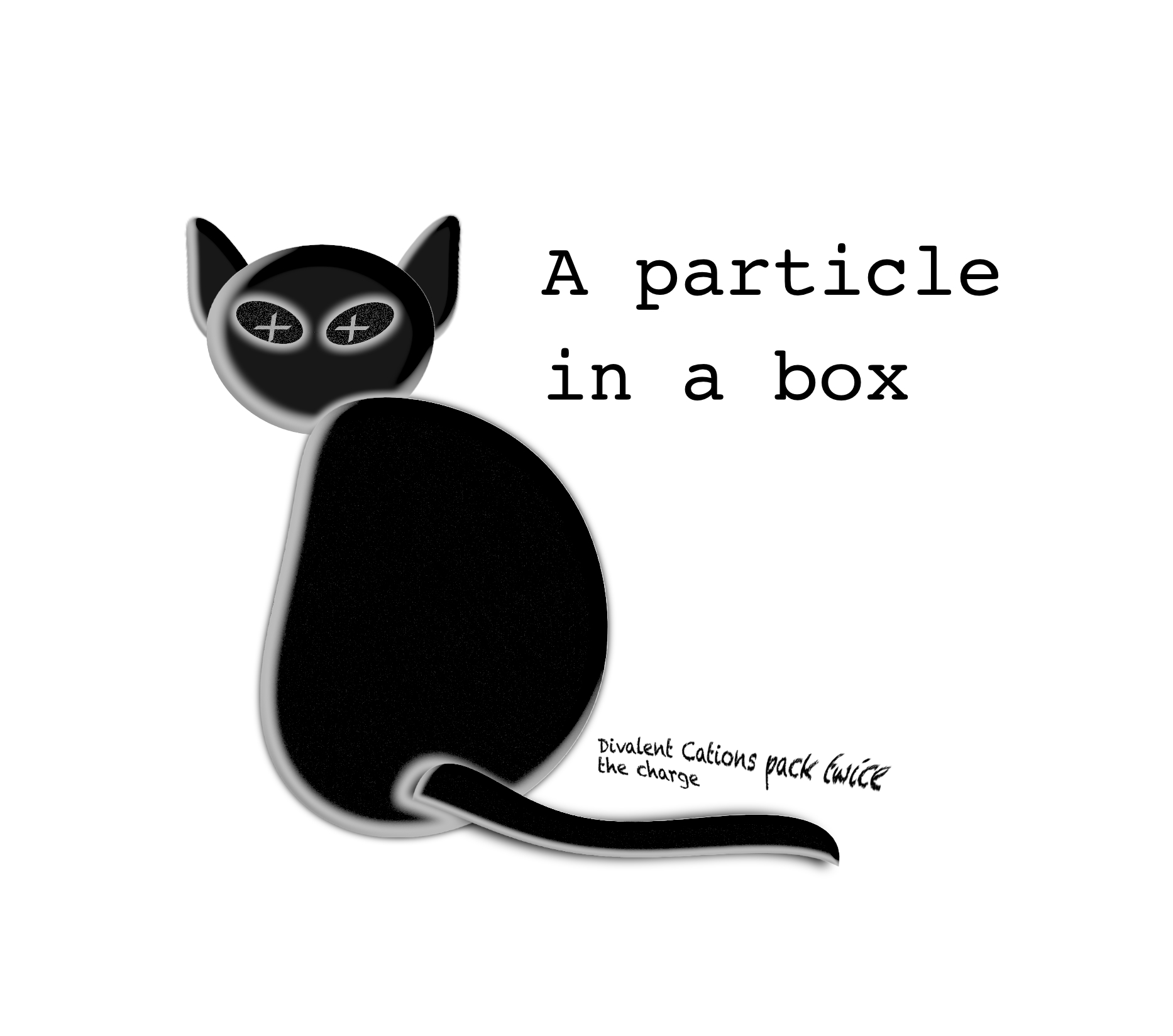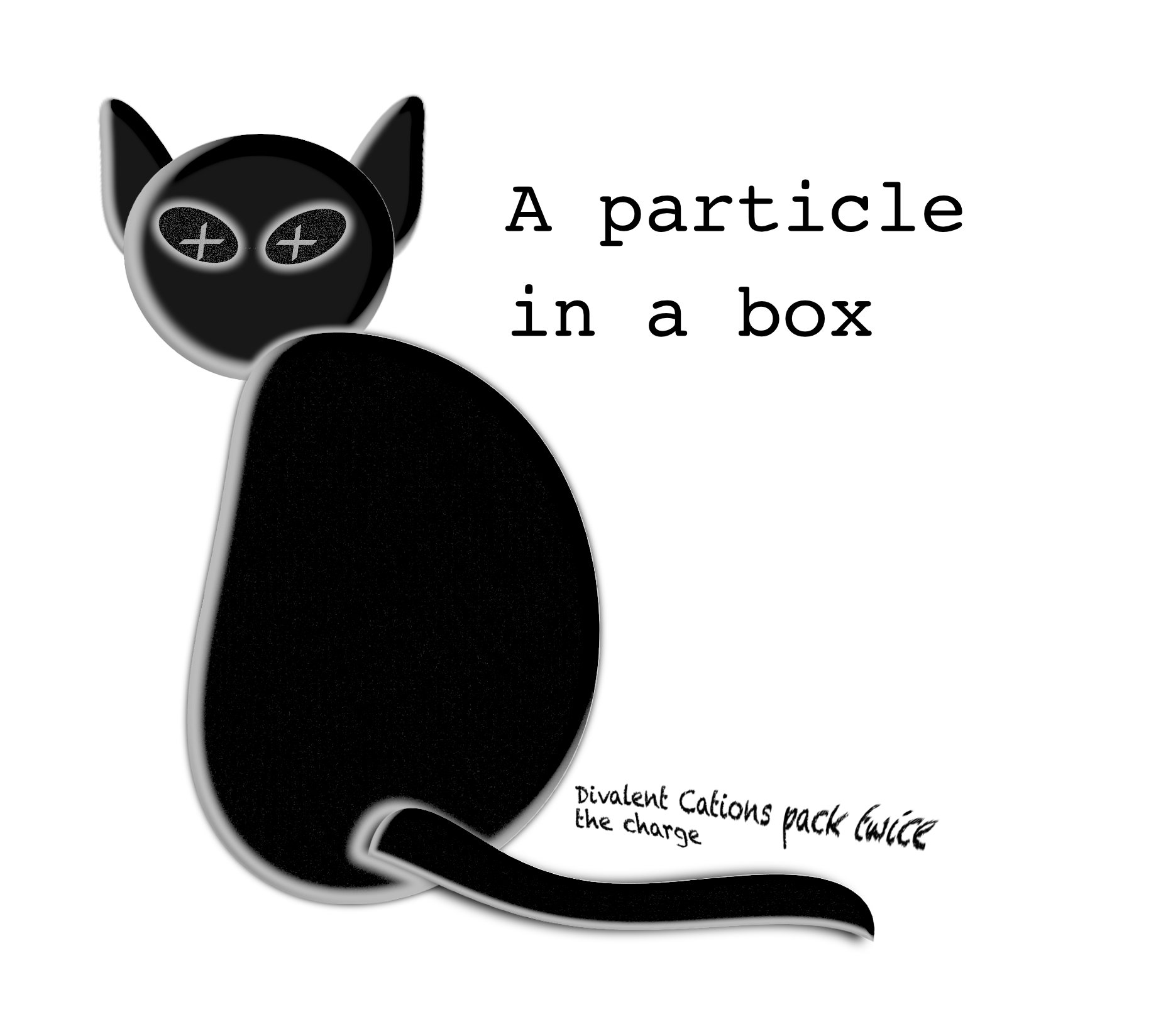
A Particle in a Box

In this post:
This post occurs between a special set of boundary conditions, and on the intersection of science, art, and speculative language. You can think of it as one of my love poems to electrochemistry.

Lately, I have been thinking on and off about electrons. Not all electrons of course and title notwithstanding, not an electron in a box—a particle so boring and so ivory tower that I give exactly a rat’s ass•(0.353 ±0.001) about it.—No high-pedigree electrons in here; my thoughts are about an electron known to me and close to my heart: one that is about to jump across an interfacial boundary to reduce an ion. For this brave electron, and it’s lover, the positively charged ion (the cation) in need of reduction, time is space and space is time.
I am not completely sure that this relationship and the constraints each of the partners encounters are balanced or equitable. After all, the electron in a conductor is supposed to live on a cloud of its peers, but the ion, though irrevocably attracted to the interface by the polarization, can still move in a random walk. Or can’t it? Is it a victim of destiny? Also, the electron can move very fast but the ion depends on it’s diffusivity on the medium, counter-diffusion of negative jackasses that always insist on going the other way, and how many of them there are; even with all its free spirit, the poor cation can have a hard time getting where it needs to be. Sometimes, when it is really crowded, some anions wants to share the cation’s solvation shell, making things even harder. Also, if you are a frustrated graduate student with a mean streak or, you can pull a dirty trick on the ion, you can pulse the current or the potential on the cell, effectively pushing the ion and its comrades forward and then bringing them to a hard break. If you want to be meaner, you can reverse the current so that when the cation and the electron are almost touching, you pull them apart. And you can do this a thousand or more times in a second, which for you is a barely appreciable amount of time, but a very, very long time for an ion and an electron. For them, the gods definitely live in the potentiostat.
There are more things to think about, and they are related to nature and shape, nanotechnology and to an army of ants that had been trained to work as bulldozers and construction cranes. But I am distracted because I was listening to her majesty the stray cat, and she told me that I was worthy.
“Worthy of what?” I said.
“Of feeding me, of course,” she answered with her easy dignity before walking off into the night. After that, I could not think about charged particles anymore. Go figure.
Did you like this post?
Then you will probably like: